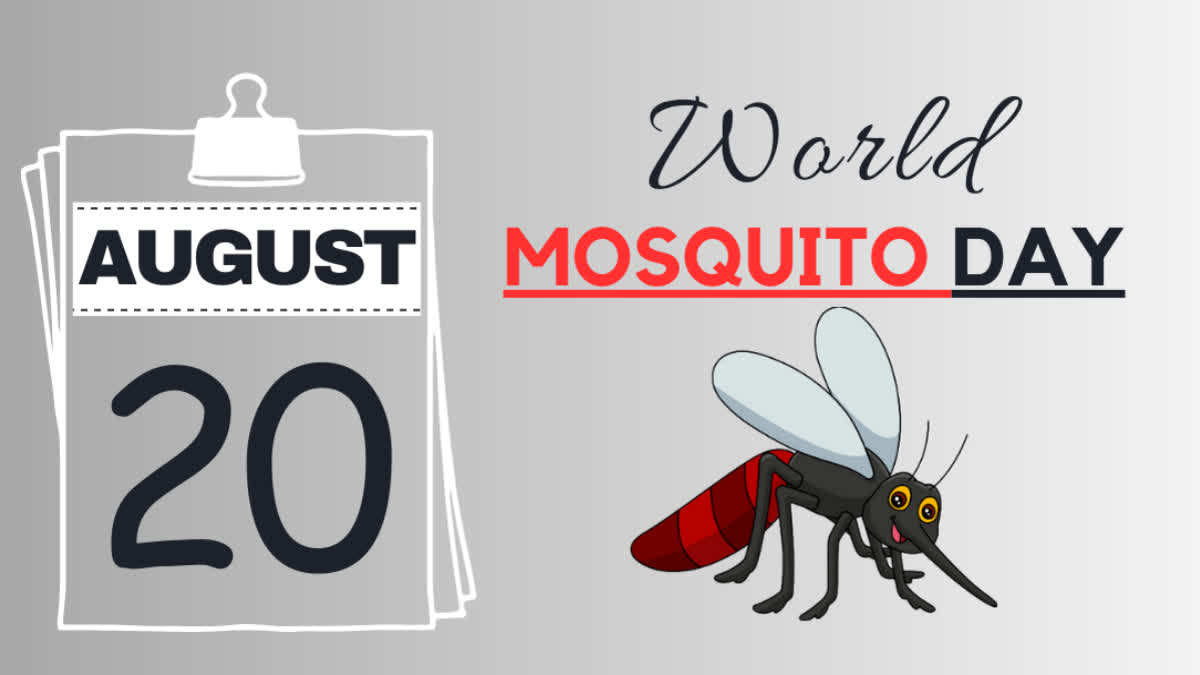Hyderabad: World Mosquito Day is observed every year on August 20th, with an aim to raise awareness about the threat posed by mosquitoes and the diseases they carry. August 20th is observed as Mosquito Day as this day marks the anniversary of Sir Ronald Ross's groundbreaking discovery in 1897, where he identified the link between mosquitoes and the transmission of malaria.
World Mosquito Day also emphasizes the importance of education and research on mosquitoes and the diseases caused by flying insects. Continued research helps us understand mosquito behaviour, develop new prevention methods, and discover innovative treatments. In recent years, technological advancements have played a significant role in the fight against diseases caused by mosquitoes. Rapid diagnostic tests, improved drug treatments, and ongoing vaccine research are all steps forward in reducing the disease's impact.
Mosquitoes are responsible for transmitting a range of diseases that can have severe health consequences. Some of the most severe diseases caused by mosquitoes are:
- Malaria: Malaria, caused by the Plasmodium parasite is a significant global health concern, which is transmitted through the bite of infected female Anopheles mosquitoes. Symptoms include fever, chills, fatigue, and sometimes severe complications. While there have been substantial efforts to control and eliminate malaria, the disease still claims hundreds of thousands of lives each year, mainly among young children and pregnant women. Mosquitoes, particularly the female Anopheles mosquitoes, are the primary vectors responsible for transmitting malaria.
- Dengue Fever: Dengue is a viral disease transmitted by Aedes mosquitoes. Symptoms include high fever, severe headache, joint and muscle pain, and rash for the viral disease which is mostly common in tropical and subtropical regions. There's no specific antiviral treatment, so supportive care is provided.
- Zika Virus: Zika Virus is also transmitted by Aedes mosquitoes, and can cause mild symptoms in some cases but is a significant concern for pregnant women due to its association with birth defects.
- Yellow Fever: Yellow fever, a viral disease transmitted by Aedes mosquitoes in tropical regions, can cause fever, jaundice, and organ failure.
- Chikungunya: Chikungunya is characterized by severe joint pain and is transmitted by Aedes mosquitoes. Treatment involves relieving symptoms through rest, fluids, and pain relievers.
- West Nile Virus: West Nile Virus, usually spread by Culex mosquitoes, can cause fever, headaches, and in severe cases, neurological symptoms.
- Japanese Encephalitis: Japanese Encephalitis is also transmitted by Culex mosquitoes, and can lead to inflammation of the brain.
